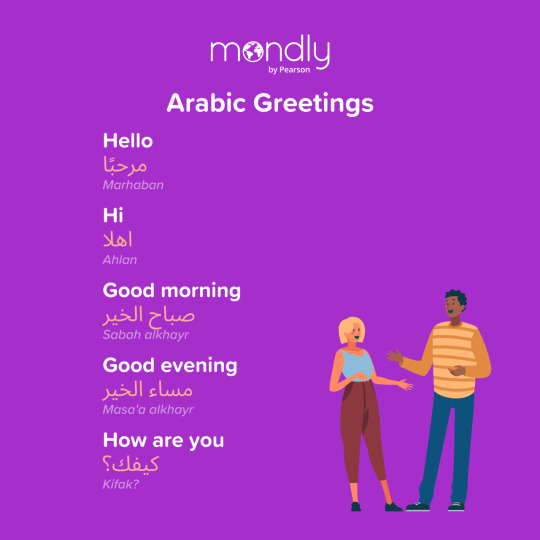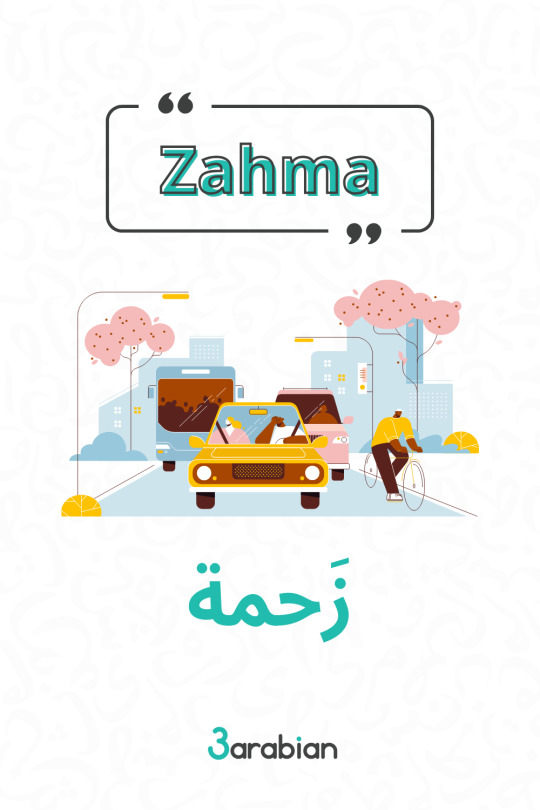#ArabicLanguage
Explore tagged Tumblr posts
Text
COMPREHENSIVE GUIDE TO ARABIC PRONOUNS
Arabic pronouns are fundamental components of the language, helping to specify and clarify meaning in communication. This guide will take you through everything you need to know about Arabic pronouns, from their types to how they are used in sentences. Whether you are a beginner or looking to refine your understanding, this comprehensive guide will provide the insights you need.
Introduction
Have you ever thought about how often you use pronouns in your daily conversations? Words like “I,” “you,” “he,” and “she” are essential for clear communication. In Arabic, pronouns play a similar role but come with their unique set of rules and forms. This guide aims to demystify Arabic pronouns, making them approachable and easy to understand.
What Are Pronouns?
Pronouns are words used to replace nouns in a sentence, avoiding repetition and making sentences more concise. For example, instead of saying “Ahmed likes Ahmed’s book,” you say, “Ahmed likes his book.” In Arabic, pronouns are equally important and are used to ensure clarity and coherence in communication.
Types of Arabic Pronouns
Arabic pronouns can be broadly categorized into several types:
Personal Pronouns: Used to refer to people or things.
Demonstrative Pronouns: Used to point to specific things.
Relative Pronouns: Used to connect clauses or sentences.
Interrogative Pronouns: Used to ask questions.
Possessive Pronouns: Used to show ownership.
Each type has its own set of rules and forms, which we will explore in detail.
Personal Pronouns
Personal pronouns in Arabic are used to refer to specific people or things and change based on gender, number, and person. Here are the basic forms:
First Person:
Singular: أنا (ana) – I
Plural: نحن (naḥnu) – We
Second Person:
Masculine Singular: أنتَ (anta) – You
Feminine Singular: أنتِ (anti) – You
Dual: أنتما (antumā) – You two
Masculine Plural: أنتم (antum) – You (all)
Feminine Plural: أنتن (antunna) – You (all, female)
Third Person:
Masculine Singular: هو (huwa) – He
Feminine Singular: هي (hiya) – She
Dual: هما (humā) – They (two)
Masculine Plural: هم (hum) – They
Feminine Plural: هن (hunna) – They (female)
Demonstrative Pronouns
Demonstrative pronouns are used to point out specific things. They vary based on proximity (this/these vs. that/those) and gender.
Near (This/These):
Masculine Singular: هذا (hādhā) – This
Feminine Singular: هذه (hādhihi) – This
Dual: هذان (hādhān) – These two (masculine)
Dual: هاتان (hātān) – These two (feminine)
Masculine Plural: هؤلاء (hā’ulā’) – These
Feminine Plural: هؤلاء (hā’ulā’) – These
Far (That/Those):
Masculine Singular: ذلك (dhālika) – That
Feminine Singular: تلك (tilka) – That
Dual: ذانك (dhānik) – Those two (masculine)
Dual: تانك (tānik) – Those two (feminine)
Masculine Plural: أولئك (ulā’ika) – Those
Feminine Plural: أولئك (ulā’ika) – Those
Relative Pronouns
Relative pronouns are used to connect clauses and provide additional information about a noun mentioned earlier in the sentence.
Who/That/Which:
Singular: الذي (al-ladhī) – Who/That (masculine)
Singular: التي (al-latī) – Who/That (feminine)
Dual: اللذان (al-ladhān) – Who/That (masculine)
Dual: اللتان (al-latān) – Who/That (feminine)
Plural: الذين (al-ladhīna) – Who/That (masculine)
Plural: اللواتي/اللاتي (al-lā’ātī/al-lā’ātī) – Who/That (feminine)
Interrogative Pronouns
Interrogative pronouns are used to ask questions about people or things.
Who: من (man)
What: ما (mā) / ماذا (mādhā)
Which: أي (ayy)
Possessive Pronouns
Possessive pronouns show ownership and are usually attached to the noun they modify. The suffix changes based on the owner’s gender and number.
First Person:
My: ي (-ī)
Our: نا (-nā)
Second Person:
Your (masculine): كَ (-ka)
Your (feminine): كِ (-ki)
Your (dual): كما (-kumā)
Your (plural masculine): كم (-kum)
Your (plural feminine): كن (-kunna)
Third Person:
His: ه (-hu)
Her: ها (-hā)
Their (dual): هما (-humā)
Their (plural masculine): هم (-hum)
Their (plural feminine): هن (-hunna)
Pronouns in Sentences
Understanding how to use pronouns in sentences is crucial. For example:
أنا أدرس (ana adrusu) – I study.
أنتَ تكتب (anta taktubu) – You (masculine) write.
هي تقرأ (hiya taqra’u) – She reads.
كتابك (kitābuka) – Your book.
These examples show how pronouns integrate into sentences, helping to convey clear meaning.
Pronouns and Verb Conjugation
In Arabic, pronouns are closely linked with verb conjugation. Each pronoun corresponds to a specific verb form. For example, the verb “to write” (يكتب – yaktubu) conjugates as:
أنا أكتب (ana aktubu) – I write.
نحن نكتب (naḥnu naktubu) – We write.
هو يكتب (huwa yaktubu) – He writes.
هي تكتب (hiya taktubu) – She writes.
Common Mistakes with Pronouns
Beginners often make these common mistakes:
Mixing up genders: Using masculine pronouns for feminine subjects and vice versa.
Incorrect suffixes: Adding the wrong suffix for possessive pronouns.
Verb agreement: Not matching verbs correctly with pronouns in sentences.
Tips for Mastering Arabic Pronouns
Practice Regularly: Use flashcards to memorize pronouns and their correct forms.
Engage with Native Speakers: Practice using pronouns in conversation to reinforce your learning.
Read Arabic Texts: Reading helps you see pronouns in context, aiding comprehension.
Write Exercises: Write sentences using different pronouns to ensure you understand their use.
Conclusion
Arabic pronouns are essential for clear and accurate communication. By understanding and practicing their various forms and uses, you can significantly improve your proficiency in Arabic. Remember, consistent practice and exposure are key to mastering these fundamental elements of the language.
FAQs
What are the main types of Arabic pronouns?The main types are personal, demonstrative, relative, interrogative, and possessive pronouns.
How do personal pronouns change in Arabic?Personal pronouns change based on gender, number, and person. For example, “I” is “أنا” (ana) for singular and “نحن” (naḥnu) for plural.
What are possessive pronouns?Possessive pronouns indicate ownership, such as “my,” “your,” “his,” “her,” “our,” and “their.” In Arabic, they vary based on the owner’s gender and number.
Can you provide an example of a relative pronoun in Arabic?Certainly! An example of a relative pronoun in Arabic is “الذي” (al-ladhī), which translates to “who” or “that” in English.
How can I avoid common mistakes with Arabic pronouns?To avoid common mistakes, practice regularly, pay attention to verb agreement, and seek feedback from native speakers or instructors.
Arabic pronouns are integral to the language’s structure and function. By mastering their forms and usage, you’ll enhance your ability to communicate effectively in Arabic. Whether you’re a beginner or seeking to refine your skills, understanding pronouns is a crucial step in your language journey.
About Author: Mr.Mahmoud Reda

Meet Mahmoud Reda, a seasoned Arabic language tutor with a wealth of experience spanning over a decade. Specializing in teaching Arabic and Quran to non-native speakers, Mahmoud has earned a reputation for his exceptional expertise and dedication to his students' success.
Mahmoud's educational journey led him to graduate from the renowned "Arabic Language" College at Al-Azhar University in Cairo. Holding the esteemed title of Hafiz and possessing Igaza, Mahmoud's qualifications underscore his deep understanding and mastery of the Arabic language.
Born and raised in Egypt, Mahmoud's cultural background infuses his teaching approach with authenticity and passion. His lifelong love for Arabic makes him a natural educator, effortlessly connecting with learners from diverse backgrounds.
What sets Mahmoud apart is his native proficiency in Egyptian Arabic, ensuring clear and concise language instruction. With over 10 years of teaching experience, Mahmoud customizes lessons to cater to individual learning styles, making the journey to fluency both engaging and effective.
Ready to embark on your Arabic learning journey? Connect with Mahmoud Reda at [email protected] for online Arabic and Quran lessons. Start your exploration of the language today and unlock a world of opportunities with Mahmoud as your trusted guide.
In conclusion, Mahmoud Reda's expertise and passion make him the ideal mentor for anyone seeking to master Arabic. With his guidance, language learning becomes an enriching experience, empowering students to communicate with confidence and fluency. Don't miss the chance to learn from Mahmoud Reda and discover the beauty of the Arabic language.
#ARABIC PRONOUNS#arabic language#arabic learning#learn arabic#learnarabic#online courses#arabiclanguage#arabic
32 notes
·
View notes
Text
📌 The names of some injuries in Egyptian Arabic
👉🏻 Get your free trial Arabic lesson now
https://forms.gle/6cEnrxP3jvPHhh7d8
👉🏻 For more Arabic lessons
https://www.communityofbabel.com/en

#arabic#language#learn arabic#online courses#courses#arabiclanguage#learnarabic#egyptianarabiclessons#communityofbabel
2 notes
·
View notes
Text

Who is learning Arabic right now? 🙋 👏🏻
#mondly#MondlybyPearson#languages#languagelearning#arabic#learnarabic#arabiclesson#speakarabic#arabiconline#arabicteacher#arabicforbeginners#arabiclanguage#arabiclearning#arabicwords#arabicgreetings
4 notes
·
View notes
Text
Looking to master Arabic from the heart of the UAE? Kiya Learning offers engaging Online Arabic Classes in Downtown Dubai, designed for learners of all levels. Whether you're a beginner or looking to refine your skills, our expert instructors provide interactive, personalized lessons that fit your schedule. Learn Arabic at your own pace with live classes, cultural insights, and practical conversation practice. Ideal for residents, professionals, and students in Downtown Dubai, Kiya Learning makes language learning easy, flexible, and fun—right from the comfort of your home.

#OnlineArabicClasses#DowntownDubai#LearnArabic#ArabicLanguage#DubaiEducation#StudyArabic#ArabicClassesDubai#DowntownDubaiLearning#OnlineLearning#ArabicForBeginners
0 notes
Text
🕌🌿 Learning Arabic Doesn’t Have to Be Dry… Try It Through Food. 🍲📚

Arabic is more than just a language—it’s a living culture, a rhythm of daily habits, and a reflection of deep spiritual values.
So what if you could learn Arabic not by drilling vocabulary... But by talking about the food you eat, the way you host guests, and the rhythm of mealtimes in Muslim life?
✨ This article is a full guide on how to do just that.
🔹 Learn everyday vocabulary (milk, bread, rice...) 🔹 Understand grammar with practical food-related questions 🔹 Discover Arab hospitality & Islamic cultural values 🔹 Get classroom activities + spiritual reflection 🔹 Perfect for new Muslims, teachers & homeschoolers
📖 Read it here:
Language learning should feed the mind, soul, and heart. 🌙
#LearnArabic#ArabicLanguage#LanguageLearning#IslamicEducation#CulturalLearning#FaithBasedLearning#MuslimRevert#ArabicForBeginners#SpiritualLearning#MuslimVoice
0 notes
Text

الْيَوْمَ أَكْمَلْتُ لَكُمْ دِينَكُمْ وَأَتْمَمْتُ عَلَيْكُمْ نِعْمَتِي وَرَضِيتُ لَكُمُ الإِسْلاَمَ دِيناً
(Al yawma akmaltu lakum deenakum wa atmamtu 'alaykum ni'amatee waradeetu lakumu al Islama deenan)
This day, I have perfected your religion for you, completed My Favour upon you, and have chosen for you Islam as your religion. {Surah Al Ma'idah 5:3}
0 notes
Text

Looking for Expert Arabic language translation in Dubai? 🌍 Noor Alhiba provides accurate and fast translation services for all your needs – personal or professional. Let us help you communicate seamlessly!
Contact us today! 📞 +971 545254356 ✉️ [email protected] 🌐 www.nooralhibatranslation.com 📱 https://www.instagram.com/nooralhibatranslation
#ArabicTranslation#TranslationServices#DubaiTranslation#NoorAlhiba#TranslationExperts#ProfessionalTranslation#ArabicLanguage#FastTranslation
0 notes
Text
مرحبًا بكم في صالة سيدني! انضم إلي في رحلتي كعارضة أزياء. (Arabic)
#arabic#arab#art#dubai#calligraphy#love#instagram#instagood#uae#english#artist#learnarabic#fashion#fitness#lifestyle#health#wellness#arabiclanguage#arabicart#music#arabicquotes#photography#islamiccalligraphy#travel#like#follow
0 notes
Text
Best Surah to Read on Arafah: A Spiritual Guide
The Day of Arafah holds immense significance in Islam. It is a day for reflection, prayer, and drawing closer to Allah. On this sacred day, Muslims engage in acts of worship, including reciting the Quran. But which Surah is the best to read on this blessed day?
Recommended Surahs to Read on Arafah
Surah Al-Ikhlas (Chapter 112) Surah Al-Ikhlas is often recommended for its concise yet profound emphasis on monotheism. Its recitation on Arafah reminds believers of the oneness of Allah and their submission to Him: “Say, He is Allah, [Who is] One, Allah, the Eternal Refuge. He neither begets nor is born, nor is there to Him any equivalent.”
Surah Al-Kahf (Chapter 18) Reading Surah Al-Kahf on Arafah is encouraged for its themes of patience, faith, and reliance on Allah. The Surah contains inspiring stories, such as the People of the Cave and the lessons of Dhul-Qarnayn, which resonate deeply on this day of worship.
Surah Al-Fatihah (Chapter 1) Known as “The Opening,” Surah Al-Fatihah is a prayer for guidance and mercy. Its recitation aligns with the core purpose of Arafah — seeking Allah’s forgiveness and blessings.
Verses of Supplication Apart from entire Surahs, many Muslims choose to recite verses that contain supplications, such as Ayat-ul-Kursi (Chapter 2:255) or the closing verses of Surah Al-Baqarah (2:285–286).
For a comprehensive discussion on the best Surahs and their significance on Arafah, visit Best Surah to Read on Arafah for more insights.
How to Prepare Spiritually for Arafah
Engaging with the Quran meaningfully on Arafah requires more than just reading — it’s about understanding and reflecting on its message. Here’s how you can enhance your Quranic experience:
Improve Your Recitation: Join the Tajweed Course to learn proper pronunciation and recitation techniques.
Understand the Quran: Enroll in the Learn Quran Tafseer Online course to explore the deeper meanings of the Surahs you recite.
Memorize Key Surahs: The Quran Memorizing Course helps you commit essential Surahs to memory, making it easier to incorporate them into your worship on Arafah.
Engage the Entire Family in Worship
The Day of Arafah is a time for families to come together in worship. To involve everyone in Quranic learning:
Adults can benefit from Quran Classes For Adults, offering flexible schedules and personalized learning.
Kids can join Quran Lessons for Kids Online, designed to make learning Quran engaging and fun for young learners.
Why Quranic Learning Matters on Arafah
The Quran is central to a Muslim’s worship, especially on significant days like Arafah. Reciting and understanding it deeply enhances the spiritual impact of your prayers and supplications. By investing in your Quranic education through courses at Al-Walid Academy, you can enrich your connection to the Quran and make your worship on Arafah more meaningful.
For more details on Quranic and Arabic courses, explore Arabic and Quran Courses and start your journey to spiritual growth today.
#Arafah#Islam#Quran#Surah#IslamicTeachings#Muslim#DayOfArafah#Faith#QuranRecitation#IslamicKnowledge#QuranCourses#LearnQuran#Tajweed#QuranTafseer#IslamicStudies#OnlineLearning#ArabicLanguage#LearnArabic#Spirituality#IslamicCommunity#Dua#Forgiveness#Ramadan#Hajj#MuslimFamily
0 notes
Text


What does “Traffic” mean in Arabic? 🚦⛔
Learn this Arabic word (Za7ma - زحمة = Traffic) to prepare for the busy roads and streets of any Arab country! 🚗 Note that “7” represents the “ح” Arabic letter.
Experience personalized Arabic learning with 3arabian's one-to-one online courses. Get flexible, tailored lessons with expert tutors to fit your schedule.
Start mastering Arabic today!
#Arabic#3arabian#LearnArabic#LanguageLearning#ArabicLanguage#Language#learn arabic online#arabic education#arabic learning
0 notes
Text
ARABIC GRAMMAR EXERCISES SIMPLE RULES AND EXAMPLES
Arabic grammar exercises may seem daunting at first, but with the right approach and understanding, mastering it can be a rewarding experience. In this comprehensive guide, we’ll explore the essential rules of Arabic grammar with clear explanations and practical examples. Whether you’re a beginner or looking to refine your skills, these simple rules and examples will help you navigate the intricacies of Arabic grammar with confidence.
Introduction
Arabic grammar exercises forms the foundation of the language, governing how words are structured and sentences are formed. By understanding the basic rules of Arabic grammar, learners can communicate effectively and express themselves with clarity.
Understanding Arabic Sentence Structure
In Arabic, the typical sentence structure follows a Subject-Verb-Object (SVO) pattern. For example:
Arabic: “ذهبتُ إلى المكتبة اليوم.”
English: “I went to the library today.”
Here, the subject “I” (أنا) performs the action of going (ذهبتُ) to the library (إلى المكتبة) today (اليوم).
Verb Conjugation in Arabic
Arabic verbs undergo various changes based on tense, person, and gender. Let’s consider an example:
Arabic: “أكتبُ رسالةً.”
English: “I write a letter.”
In this sentence, the verb “أكتبُ” (I write) is conjugated to match the first person singular pronoun “أنا” (I).
Noun and Pronoun Usage
Nouns and pronouns play a crucial role in Arabic sentences, indicating subjects, objects, and possession. For instance:
Arabic: “الطالبُ يقرأ الكتاب.”
English: “The student reads the book.”
Here, “الطالبُ” (the student) is the subject performing the action of reading (يقرأ) “الكتاب” (the book).
Prepositions in Arabic
Prepositions are essential for indicating relationships between words in Arabic sentences. Consider this example:
Arabic: “أنا في المنزل.”
English: “I am at home.”
The preposition “في” (in/at) indicates the location of the subject “أنا” (I) as “المنزل” (home).
Reading and Writing Practice
Practicing reading and writing is vital for reinforcing Arabic grammar concepts. Try writing paragraphs or short stories using the grammar rules discussed above. For example:
Arabic: “اكتب فقرةً عن يومك اليوم.”
English: “Write a paragraph about your day today.”
Conclusion
Mastering Arabic grammar exercises takes time and practice, but with dedication and perseverance, anyone can achieve fluency. By understanding the fundamental rules and practicing regularly, learners can unlock the beauty of the Arabic language and communicate effectively with others.
FAQs
Q: How can I improve my Arabic grammar skills?
A: Practice regularly, seek guidance from tutors or language partners, and immerse yourself in Arabic media.
Q: Are there any shortcuts to learning Arabic grammar?
A: While there are no shortcuts, consistent practice and exposure to the language can accelerate your learning process.
Q: What are some common mistakes to avoid in Arabic grammar?
A: Avoid literal translations from English, pay attention to verb conjugations, and practice using prepositions correctly.
Q: How long does it take to master Arabic grammar?
A: The time it takes to master Arabic grammar varies for each individual, depending on factors such as prior language learning experience and dedication to practice.
Q: Where can I find additional resources for learning Arabic grammar?
A: Explore online courses, textbooks, language exchange forums, and Arabic language apps for additional practice and support.
About Author: Mr.Mahmoud Reda

Meet Mahmoud Reda, a seasoned Arabic language tutor with a wealth of experience spanning over a decade. Specializing in teaching Arabic and Quran to non-native speakers, Mahmoud has earned a reputation for his exceptional expertise and dedication to his students' success.
Mahmoud's educational journey led him to graduate from the renowned "Arabic Language" College at Al-Azhar University in Cairo. Holding the esteemed title of Hafiz and possessing Igaza, Mahmoud's qualifications underscore his deep understanding and mastery of the Arabic language.
Born and raised in Egypt, Mahmoud's cultural background infuses his teaching approach with authenticity and passion. His lifelong love for Arabic makes him a natural educator, effortlessly connecting with learners from diverse backgrounds.
What sets Mahmoud apart is his native proficiency in Egyptian Arabic, ensuring clear and concise language instruction. With over 10 years of teaching experience, Mahmoud customizes lessons to cater to individual learning styles, making the journey to fluency both engaging and effective.
Ready to embark on your Arabic learning journey? Connect with Mahmoud Reda at [email protected] for online Arabic and Quran lessons. Start your exploration of the language today and unlock a world of opportunities with Mahmoud as your trusted guide.
In conclusion, Mahmoud Reda's expertise and passion make him the ideal mentor for anyone seeking to master Arabic. With his guidance, language learning becomes an enriching experience, empowering students to communicate with confidence and fluency. Don't miss the chance to learn from Mahmoud Reda and discover the beauty of the Arabic language.
8 notes
·
View notes
Text
📌 Some common phrases in Standard Arabic
👉🏻 Get your free trial Arabic lesson now
https://forms.gle/6cEnrxP3jvPHhh7d8
👉🏻 For more Arabic lessons
https://www.communityofbabel.com/en

#Arabic #learnarabic #learnarabiclanguage #learnarabiconline #learning #language #courses #Learn_Arabic #languagelearning #course #communityofbabel
#arabic#language#online courses#learn arabic#communityofbabel#arabiclanguage#courses#youtube#learnarabic#egyptianarabiclessons
3 notes
·
View notes
Text

تركت لكم حب الاشخاص واكتفيت بحب القطط
#اقتباس#اقتاباسات#arabic#islam#arab#art#dubai#calligraphy#love#arabiccalligraphy#muslim#quran#instagram#instagood#islamic#uae#allah#english#islamicquotes#artist#islamicart#learnarabic#fashion#arabiclanguage#arabicart#music#bahasaarab#arabicquotes#photography#islamiccalligraphy
1 note
·
View note
Text
https://kiyalearning.ae/online-arabic-classes-in-jumeirah/
Kiya Learning offers Online Arabic Classes at Jumeirah. Our tutors provide interactive, personalized classes for students of all ages--whether they are beginners or want to improve their fluency. Our tutors use engaging methods to make learning fun and effective. We concentrate on reading, writing and speaking. Flexible timing, cultural insights, and live sessions ensure that you can learn from the comfort of home. Kiya Learning offers top-quality, online education that is tailored to meet your goals and pace.

0 notes
Text
📖 Master Arabic with Ease! 🌍✨
Learning Arabic opens doors to endless opportunities! 🚀 Discover proven strategies to master Arabic effectively and effortlessly.
📌 Why Learn Arabic? ✅ Explore a rich cultural and historical heritage ✅ Enhance your career and academic prospects ✅ Communicate fluently in one of the world's most significant languages
🔗 Start your Arabic learning journey today! 👇
0 notes
Text

Enroll your kids at Time Master Skills Development Center, Abu Dhabi, for the best Arabic training. With experienced trainers and interactive courses, mastering Arabic becomes fun and easy.
Abu Dhabi: 052 2302277 Mussafah: 052 2302266
Visit, [email protected]
#ArabicForKids#LearnArabic#KidsArabicClasses#ArabicLanguage#ArabicEducation#CulturalLearning#BilingualKids#ArabicFun#LanguageSkills
0 notes